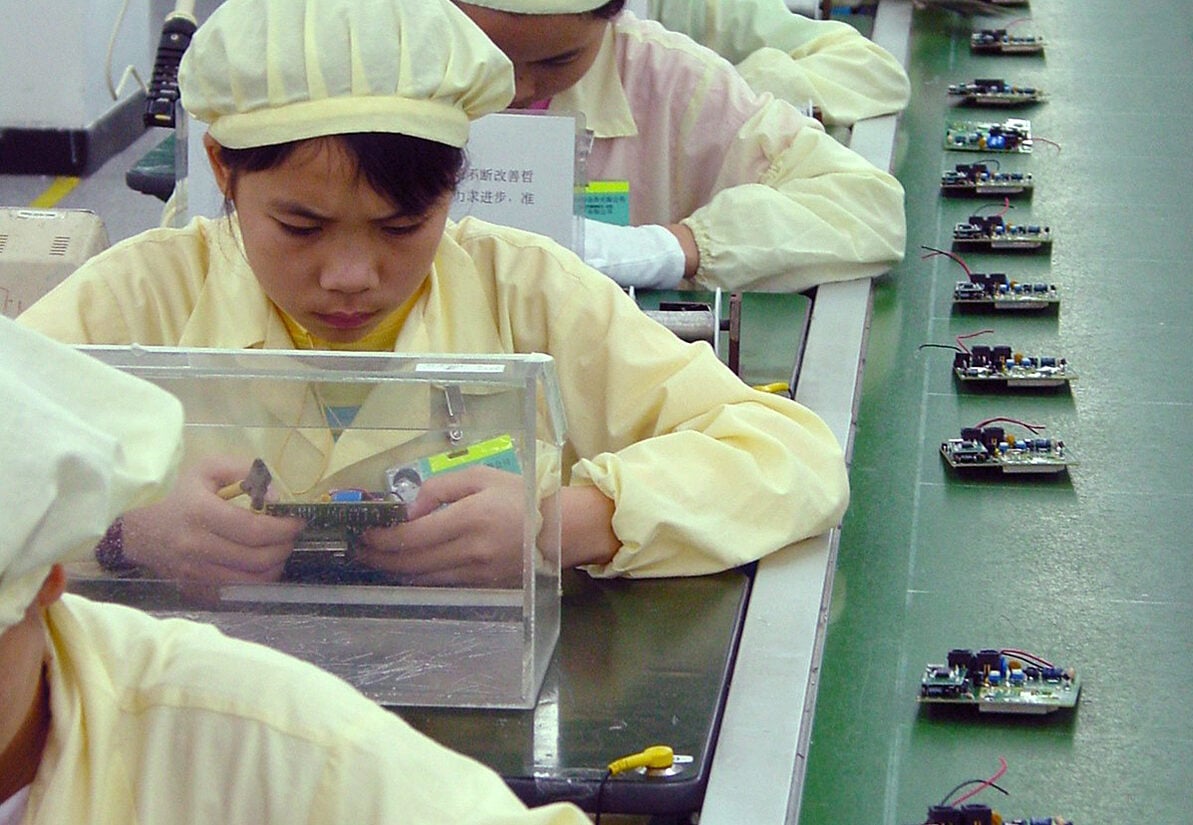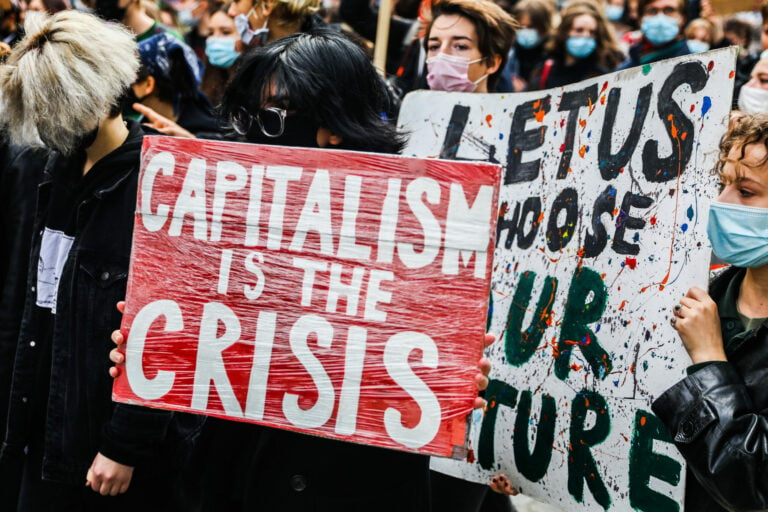
Failures in due diligence and workers’ rights protection
Apple’s responsibility in its ‘most critical supply chain’.
In July, labour unrest broke out following a deal struck between two Apple suppliers that transferred control of a major iPhone factory in Shanghai from one to the other. The shift, part of a larger business deal between Pegatron Corporation and Luxshare-ICT, was initially presented to workers as a routine transfer involving little more than a name change. However, a closer look at the details reveals a failure to abide by laws intended to protect workers during major business transitions like this. Amid claims that management deliberately misled them, workers at this key Apple assembly plant went on strike, disrupting production and demanding compensation.
This incident demonstrates some of the common ways that Chinese workers’ rights are routinely ignored by factories linked to global supply chains. More importantly, it highlights how many of these labour abuses could be prevented with proper due diligence. Apple should have identified the risks and ensured that workers’ rights were protected in the course of these changes to its supply chain.
China’s Crucial Role in Apple’s Supply Chain
China plays a significant role in Apple’s supply chain, with Apple CEO Tim Cook stating that “no supply chain is more critical(opens in new window) ” to the company. China is also Apple’s third largest market by revenue(opens in new window) . Cook’s multiple high-profile trips to China, including two in 2023 and one in March 2024, highlight Apple’s efforts to maintain positive relations with Chinese officials and the public. While Apple has made some visible moves to diversify its supply chain beyond China to countries like Vietnam and India, Chinese companies continue to dominate(opens in new window) its supply chain. Apple has also increasingly shifted business, both in and outside China, to Luxshare-ICT, a company becoming known as “China’s iPhone champion(opens in new window) ” and is rapidly displacing Taiwanese manufacturers like Pegatron that have been long-time fixtures in Apple’s supply chain.
Labour unrest following the transfer
In December 2023, Pegatron Corporation and Luxshare-ICT announced a deal that would see Pegatron’s two iPhone manufacturing factories in China come under the control of a Luxshare subsidiary with substantial government investment. Over the following months, most of the assets from one of these factories, Protek (Shanghai) Limited, were transferred to a new company, Xianshuo Technology, which would take over Protek’s iPhone assembly. Workers were urged to sign new contracts with Xianshuo, under the premise that this was an “intra-company transfer”, meaning they would not be eligible for compensation if they declined.
Amid the complex ownership restructuring, most workers agreed to sign. However, some, suspecting they were not being told the whole story, resisted. In July, these remaining workers successfully pressured Protek to pay compensation for terminating their jobs. This prompted strikes and protests from those who had already signed contracts with Xianshuo and now felt they had been misled. The unrest, lasting over a month, forced Xianshuo to hire thousands of hourly workers to keep its iPhone assembly lines running.


Chinese law backs the workers’ claims. Despite management’s insistence that this was an “intra-company transfer”, the reality was different. Even though the transfer from Protek to Xianshuo did not require any physical relocation, under the new ownership structure, Protek remained an independent entity, and legally, its workforce could not be directly transferred. Under Chinese law, Protek should have carried out advance consultation with workers or union representatives, terminated existing contracts, and paid compensation before workers signed with Xianshuo.
A union representative at Protek reportedly recommended this course of action, according to a document(opens in new window) uncovered by China Labour Bulletin. However, the high financial burden of compensating the entire workforce likely led the company to tell workers that compensation was out of the question and convince them to sever ties with Protek voluntarily.
Apple’s failure to ensure adequate due diligence and protect worker rights
The deal between Pegatron and Luxshare was bound to have consequences for workers, yet neither company appears to have taken these seriously. It is hard to believe that Apple was not at least aware of the details of a deal affecting the production of one of its most iconic products. Apple should have ensured its suppliers’ compliance with labour laws and protection of workers’ rights throughout the process. The fact that this did not happen shows a failure in Apple’s responsibility with respect to workers in its “most critical supply chain”.
Asked by SOMO to describe its due diligence and steps taken to safeguard workers’ rights in the course of this business decision, Apple responded with a boilerplate statement that didn’t address Protek or the labour issues there: “At Apple, people come first in everything we do,” the email stated. “Our respect for human rights includes our commitment to ensuring everyone is treated with dignity and respect across our worldwide supply chain.”
Neither Pegatron nor Luxshare responded to SOMO’s request for information.
Pegatron, Luxshare, and Apple all failed to address the legal risks with worker contracts. Communication with workers was, at best, incomplete and, at worst, deliberately misleading. The enterprise trade union’s views appear to have been ignored. Instead of hiding the true nature of the arrangement, factory management should have been transparent, fulfilled its legal obligations, and allowed workers to understand how the change of ownership might impact their working lives.
This case illustrates, once again, that, despite companies’ commitments and elaborate policies, they often fail to identify and address human rights risks in their supply chains. Human rights due diligence for corporate supply chains is not only relevant for egregious abuses such as forced labour, dangerous working conditions, or excessive overtime. It is also necessary when companies, like Apple, make business decisions that shift suppliers or relocate manufacturing. As this case shows, workers’ rights can be denied even by something as routine as a change of corporate ownership.
Workers in Apple’s “most critical supply chain” deserve assurance that their rights will be protected– especially when Apple is in such a strong position to do so.
SOMO has previously discussed companies’ responsibilities toward their suppliers. For more insights, read our ‘Chain of Consequences’ report.
Do you need more information?
-

Joshua Rosenzweig
Senior Advisor on Business and Human Rights & China -

Virginia Sandjojo
Senior Policy and Advocacy Officer
Related news
-

-
SOMO strategy 2021 – 2025 Published on:Posted in category:Publication




